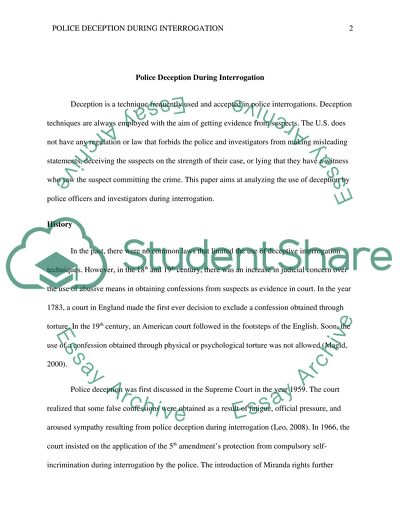Cite this document
(“Criminal justice class ( Police deception during interrogation) Term Paper”, n.d.)
Criminal justice class ( Police deception during interrogation) Term Paper. Retrieved from https://studentshare.org/sociology/1490411-criminal-justice-class-police-deception-during
Criminal justice class ( Police deception during interrogation) Term Paper. Retrieved from https://studentshare.org/sociology/1490411-criminal-justice-class-police-deception-during
(Criminal Justice Class ( Police Deception During Interrogation) Term Paper)
Criminal Justice Class ( Police Deception During Interrogation) Term Paper. https://studentshare.org/sociology/1490411-criminal-justice-class-police-deception-during.
Criminal Justice Class ( Police Deception During Interrogation) Term Paper. https://studentshare.org/sociology/1490411-criminal-justice-class-police-deception-during.
“Criminal Justice Class ( Police Deception During Interrogation) Term Paper”, n.d. https://studentshare.org/sociology/1490411-criminal-justice-class-police-deception-during.


